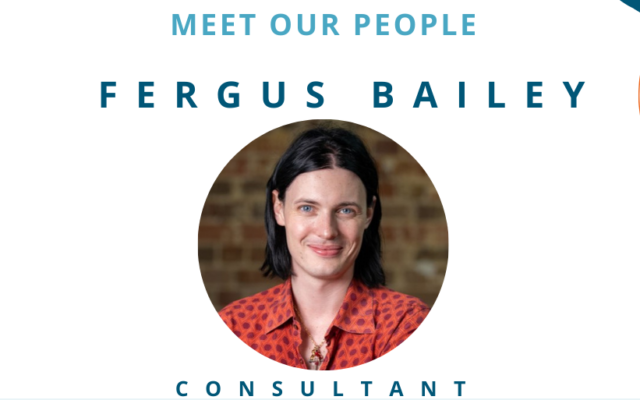
Sensemaking through uncertainty
Life can only be understood backwards, but it must be lived forward [Soren Kierkegaard]
We may only be able to see life’s full picture through the rear-view mirror, but we need to use information we have in the moment to make sense of things as they’re occurring. This helps us move from reaction, through reflection to refined response.
Recently, Canadian facilitator Chris Corrigan put out a call for blog posts that could be useful in the COVID-19 context. The first request was for something to support sense-making in real time. Chris’s response described an approach grounded in participatory narrative inquiry and human systems dynamics.
First, observe the situation. Then, look for patterns and inquire into these. What do you notice in general? What are the exceptions to these generalisations? The contradictions? The surprises? What are you curious about?
Next, using complexity concepts, look at what is keeping the patterns you have identified in place. The attractors that hold things together, the type of boundaries in place, the connections, the exchanges, and the identities and power dynamics at play.
Every viewpoint is useful, and it takes a wide variety of views for any group to navigate the universe. [Tyson Yunkaporta]
To support evaluators, facilitators and organisations put this approach into practice, Chris joined with colleagues Carolyn Camman, Amanda Fenton and Trilby Smith to run a couple of real-time sensemaking sessions. I’m grateful to have participated in one of the sessions with evaluators and facilitators from Canada, America, New Zealand and Australia.
In small groups, we took the time to observe our situation, documenting stories of where we and our clients are challenged in doing evaluation right now. Our identified stories were diverse: programs shifting, staff grappling with changed conditions, barriers to adaptation tied to preconceived notions of what evaluation is, the desire for perfect getting in the way of good enough, difficulties in deciphering when to press forward and when to take the backseat, and issues of equity (including in the shift to online modes of data collection).
Then we looked for patterns. Doing this with people with different perspectives opened my eyes to things I would otherwise not have noticed. It helped that we had a generous amount of time to process what we were seeing. (All that advice about slowing things down online is right!) What stood out for me were the contradictions: between conceptions of evaluation as providing “certainty” versus support to question and act, predetermined versus emergent outcomes, and a focus on accountability versus learning.
After a musical interlude (I need to try this in my next zoom session), we reconvened to identify actionable insights. These included making the invisible visible, taking opportunities to embed the changes we want to take forward, learning from people who have already lived through states of emergency, unlearning and learning instead from Indigenous knowledges, and sharing our experiences as we move through this.
Amidst the haste of the past few weeks, the workshop created a space for calm reflection, connection, and identification of the possibilities before us.
All life is an experiment. The more experiments you make the better. [Ralph Waldo Emerson]
Our colleague, Sharon Marra-Brown, has adapted what we learnt from Chris’s presentation into a sense-making tool. You can use it with your team to explore what is happening for your organisation now and to plan a response – Download a PDF version to share.
Our next Business as Unusual webinar is Sensemaking Under Pressure. In this interactive online workshop, Jade Maloney will be joined by a team of experienced facilitators to help you apply Chris Corrigan’s ‘Sensemaking in Realtime’ tool to gather observations, look for patterns and identify actionable insights.
The workshop is free. It is on 8 May 2020, from 12.00pm to 1.30pm AEST.




